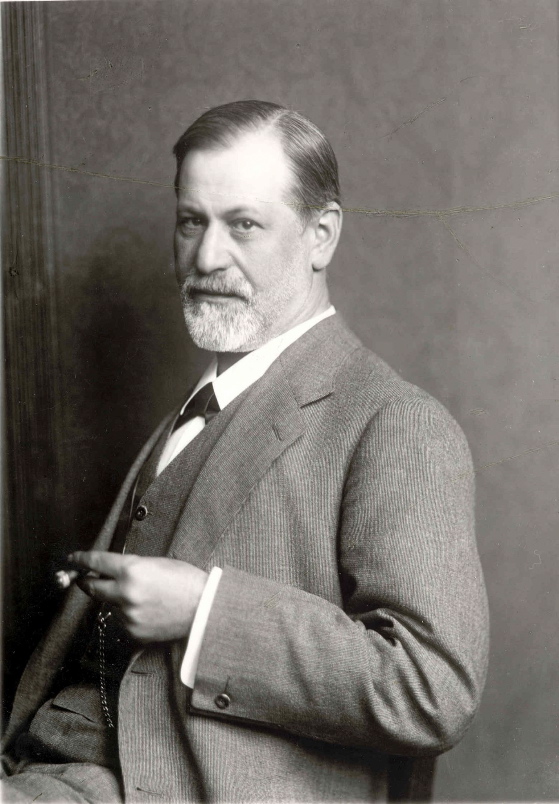Psychopathy, the mental illness that produces serial and mass killers,
like Ted Bundy (above) and Eric Harris (of Columbine, below), is really
bizarre. It's
imperfectly understood but what is known about it is terrifying.
Psychopaths have no capacity — whatsoever — for empathy. It's not a
psychological defect or moral failing but seems to involve the
configuration of the brain. The results of brain scans of psychopaths
undergoing tests for empathy are utterly anomalous — many animals have
more capacity for empathy than human psychopaths.
The condition seems to be congenital, though there is some evidence
that early childhood development can affect whether or not a psychopath
becomes violent. Only a small percentage of psychopaths do become
violent. The rest usually become hustlers or con-men of one sort or
another. Psychopaths are almost always well-integrated socially,
preternaturally adept at learning and mimicking the behaviors
associated with empathy and other normal human emotions.
There is no cure for psychopathy, and it requires highly specialized
tests to identify it. The illness actually grows worse with
psychiatric therapy, unless the therapist has diagnosed it in
advance. In all other cases the psychopath uses the therapy as an
advanced course in determining what behavior the therapist is seeking
to encourage and leaning to feign it. Eric Harris was undergoing
court-ordered therapy — the result of being arrested for a petty crime
— shortly before he committed the massacre at Columbine (seen in
progress below) and his
therapist thought he was making extraordinary progress. He didn't have
a clue, not even the hint of a clue, as to Harris's actual mental state.
Harris's
condition was diagnosed only after the fact through the extensive
diaries he kept, which manifested all the recognized symptoms of
psychopathy — including his delight at fooling his therapist. (Dylan Klebold, Harris's partner in the Columbine killings, was a suicidal depressive — a different kettle of fish entirely.)
Modern corporations, when they reach a certain size, also display the
recognized symptoms of psychopathy. They operate on the principle of
pure self-interest. Like psychopaths, they construct elaborate
rationales for selfishness. They take as a given, for example, that
any free market activity is morally justified, as leading to the
greatest good for the greatest number. It follows from this that any
action which benefits the shareholders, and by extension the executives
and employees of the corporation, is morally sound. It is assumed
that any “bad” actions in a market will be corrected by the market,
which means that all “uncorrected” (i. e. profitable) actions are good
by definition.
When Brooksley Born (above), the chairperson of a small regulatory
commission
in the
Clinton administration, tried to warn Fed Chairman Alan Greenspan about
the dangers of the unregulated market for over-the-counter derivatives
— the financial instruments which almost brought down the world
economy last
year — he didn't want to hear about it. He was opposed even to
regulations against outright fraud in this market, believing that the
market itself would regulate fraud more efficiently than government
ever could.
Greenspan and the Wall Street executives who think like him are not
psychopaths, but they are intellectually invested in a theory of
business and human behavior which has created a psychopathic system —
a system which sees selfishness as invariably productive and right and
which simply denies any evidence to the contrary, as clinical
psychopaths do. It is a form of magical thinking.
The proof that Greenspan is not a psychopath can be found in his
admission this year that he was wrong in his assumptions about the
behavior of markets and human beings acting through markets. A true
psychopath is incapable of seeing any other point of view but his own
and incapable of taking any responsibility at all for his actions.
But that's the problem with modern corporations of a certain size — no
individual is ultimately responsible for its actions. This is why
non-psychopaths can commit psychopathic acts as agents of a corporation
and feel no need to take responsibility for them. This is why the very
executives who nearly brought the world to the brink of economic
collapse still believe they are entitled to large compensation
packages. They did nothing wrong — it was the system which did it,
and it's not their fault that the system is psychopathic.
In a way they have a point. Psychopaths are born psychopaths and can't
be cured, just as large corporations are by nature psychopathic and
can't be changed. This is not an argument, however, for letting
psychopaths do anything they want to do, or for letting corporations do
anything they want to do. Society is obliged to protect itself from
psychopathic behavior in whatever form it takes — even if those who
engage in it aren't “guilty” or “responsible” in the usual senses of
those words.
When Alan Greenspan told Brooksley Born that he didn't believe in
regulating the markets for fraud, she should have felt empowered to
make a citizen's arrest on the spot. It would have saved us all a
lot of misery.
[I am indebted to Dave Cullen's extraordinary book Columbine for its fascinating summary of the current state of knowledge about psychopathy.]
mardecortésbaja.com
A Journal Of Visual Culture
